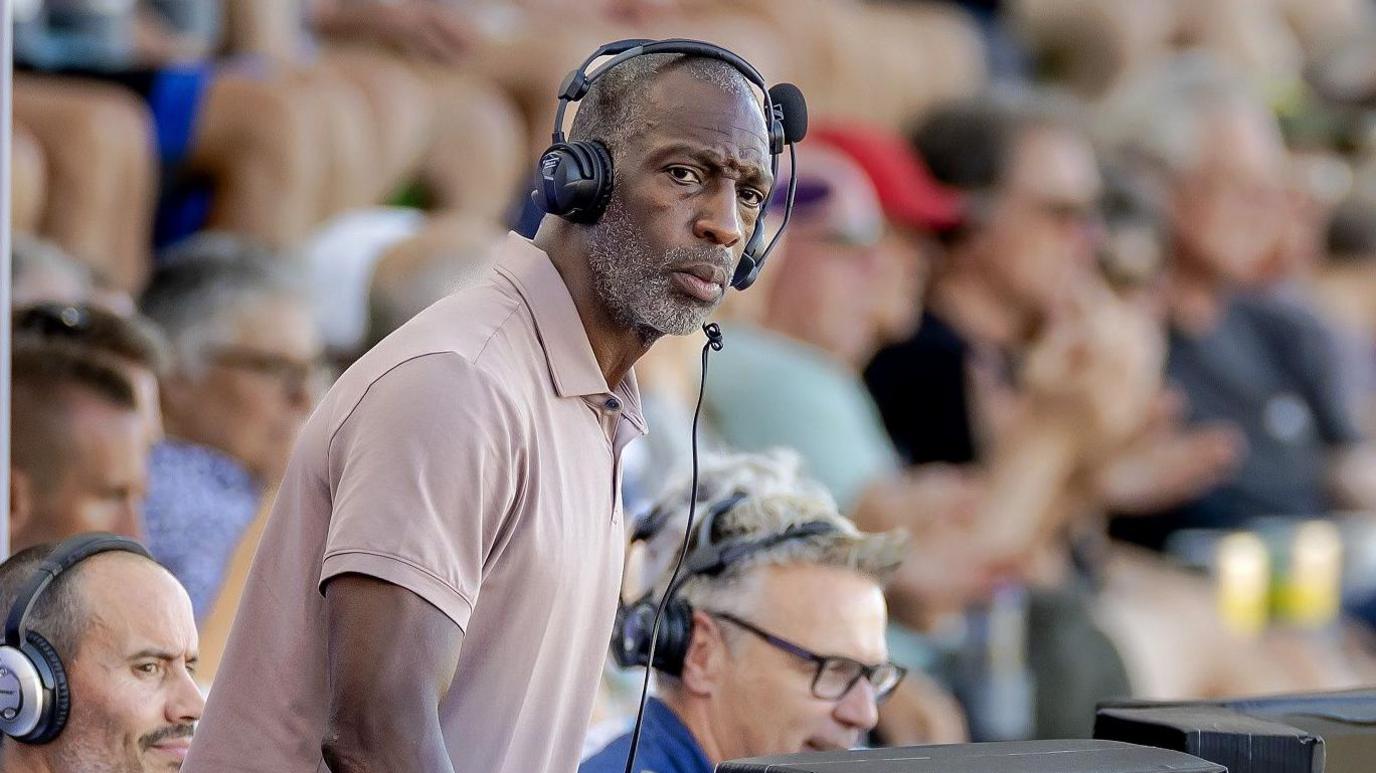 Image source, Getty Images
Image source, Getty Images
Michael Johnson won four Olympic golds among 12 global titles
Harry Poole
BBC Sport journalist
Michael Johnson's Grand Slam Track is set for its inaugural season in 2025 - but what is it all about, what does it mean for athletics and could it come to the UK?
American four-time Olympic champion Johnson launched Grand Slam Track in June, before athletics' quadrennial moment in the global spotlight at the Paris 2024 Olympic Games.
In a bid to harness the attention and excitement the sport generates every four years at the Games, through Grand Slam Track Johnson intends to maintain that interest by gathering the world's fastest athletes at four three-day events each year.
"My objective is to create the opportunities that athletes have always wanted and to put them on a stage that is worthy of their greatness, with races that mean something," Johnson told BBC Sport.
"To do that you have to have the best competing against each other. That is what is compelling about the biggest sports in the world. That's what we're creating."
Big-name announcements and lucrative prize money have helped build hype, while other stakeholders have been forced to react and those omitted have voiced criticism.
Johnson lays out vision for future
Image source, Getty Images
Image caption,Michael Johnson was part of Los Angeles' successful bid to host the 2028 Olympics and the city has also been announced as a Grand Slam Track location in 2025
Through more regular head-to-head showdowns between the world's fastest men and women, Grand Slam Track aims to intensify competition and rivalries between athletes who might otherwise rarely meet - to benefit them and fans.
As an ex-competitor, Johnson also wants to ensure athletes are appropriately rewarded financially. In addition to a $12.6m (£10m) prize pot, 48 contracted 'racers' will receive a base salary to compete at all four slams.
How will it work? At each slam the racers are joined by 48 challengers in one of six groups of men and women - they are short and long sprints, short and long hurdles, and short and long distance - with each athlete running in two events.
Athletes receive points for their finishing position in both races. The combined results determine each slam's champion - and the recipient of $100,000 (£79,500).
Three of the first four host cities are in the United States, with stops in Miami, Philadelphia and Los Angeles following the curtain-raiser in Kingston, Jamaica.
Johnson said the decision was taken to focus on the US audience in the first year - and denied reports that UK Athletics had rejected the chance to host a Grand Slam Track event.
"UK Athletics didn't decline to have a Grand Slam Track event," said Johnson.
"We engaged with 10 interested cities around the globe and we decided for year one that we wanted to focus our energy on the US.
"We will continue to engage with interested cities. As we look to expand and rotate, that [a UK event] certainly will be a possibility."
How does Grand Slam Track fit in the calendar?
Athletes have a global outdoor championship to target for a fifth successive year in 2025, following the postponement of the Tokyo 2020 Olympics.
A third World Championships in four years will take place in Tokyo next September, while there is also a World Indoor Championships in Nanjing in March.
The Diamond League - the sport's established professional circuit - will again hold 15 meetings in 2025 and has announced record prize money totalling $9.2m (£7.3m) as it bids to compete for athlete attention in a packed calendar.
Who has signed up - and who is missing?
American star Sydney McLaughlin-Levrone was the first racer to be announced in June, the 400m hurdles Olympic champion and world record holder a notable inclusion given she has raced sparingly in the past.
"What Sydney represents is the issue with the sport. When I asked why she doesn't race much she said she likes to race but, when she does, she wants it to mean something," said Johnson.
On Tuesday, Olympic 200m gold medallist Gabby Thomas became the 38th of 48 full-season racers to be confirmed.
The full Olympic men's 1500m podium will be present, with Great Britain's Josh Kerr joining gold medallist Cole Hocker and Yared Nuguse.
Image source, Getty Images
Image caption,Matthew Hudson-Smith, Daryll Neita and Josh Kerr are the three British athletes to have signed so far
Jakob Ingebrigtsen - whose showdown with Kerr was one of the most eagerly anticipated moments in Paris - is one of the key names missing, as is McLaughlin-Levrone's closest challenger Femke Bol.
Daryll Neita became the first British woman to sign up in November, with Olympic 400m silver medallist Matthew Hudson-Smith also signed.
They join world 800m champion Mary Moraa - but of that event's 'Big Three' competitors Britain's Olympic gold medallist Keely Hodgkinson and American Athing Mu are missing.
'I think I can save track - not track and field'
The biggest call Johnson has made is excluding half the sport of athletics.
Great Britain's Jazmin Sawyers believes Grand Slam Track cannot achieve the change it seeks without including field events.
The European indoor long jump champion told the Telegraph, external: "[Johnson] talks about revolutionising the sport, but in its current iteration that's not happening. The sport is athletics, that's the sport that's given him the life that he has."
Meanwhile, the USA's two-time reigning Olympic discus champion Valarie Allman defended field eventers as athletes who "want to compete the most" and hopes new competitions "recognise that track and field is a total package".
In response to the criticism which followed that decision, Johnson said: "I love this sport. But I have had time to reconcile the fact that if we continue to just do the same thing, tell people that 'you should love this' or 'you should understand this' - that doesn't work.
"Grand Slam Track is track, that is what we're doing. I am going to save what I think I can save; I think I can save track, I don't think I can save track and field.
"Putting the two together works at the Olympics and World Championships, but I'm not sure it works when you're trying to create a professional sport outside of those global competitions."
Image source, Getty Images
Image caption,Field eventers including pole vault star Mondo Duplantis have been excluded from Grand Slam Track
Others are also looking to adapt to a shifting landscape, not least World Athletics which this year announced a new three-day competition.
The World Athletics Ultimate Championship - which includes field events - will be held for the first time in 2026, with champions pocketing $150,000 (£118,000) at the end-of-season competition.
The sport's governing body, which this summer introduced prize money at the Olympics, is exploring new ways to appeal to a mass audience between Olympic Games - including a World Treadmill Championships, external.
"We have had numerous conversations with World Athletics and we have listened to a lot of what they have said over the years," said Johnson.
"They want to grow the sport in the US, for athletes to be paid more, to encourage more innovation in the sport.
"When we sat down to build Grand Slam Track we listened to that - we built Grand Slam Track to do all those things."

 Movie
Movie 3 months ago
67
3 months ago
67 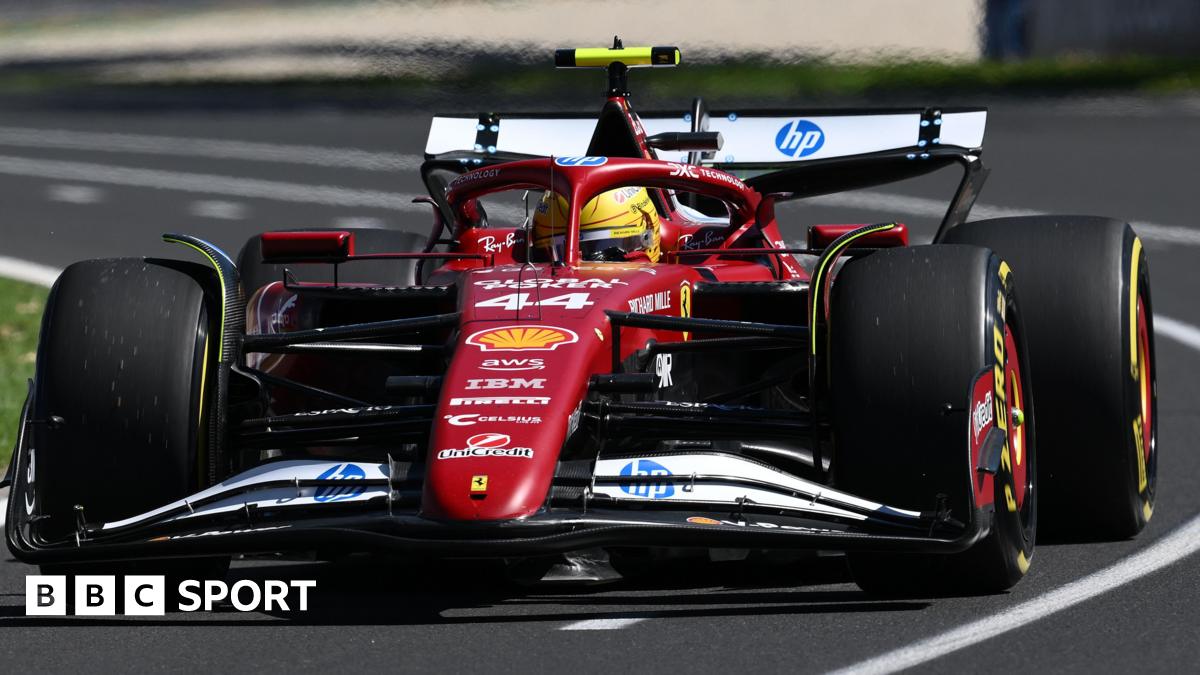

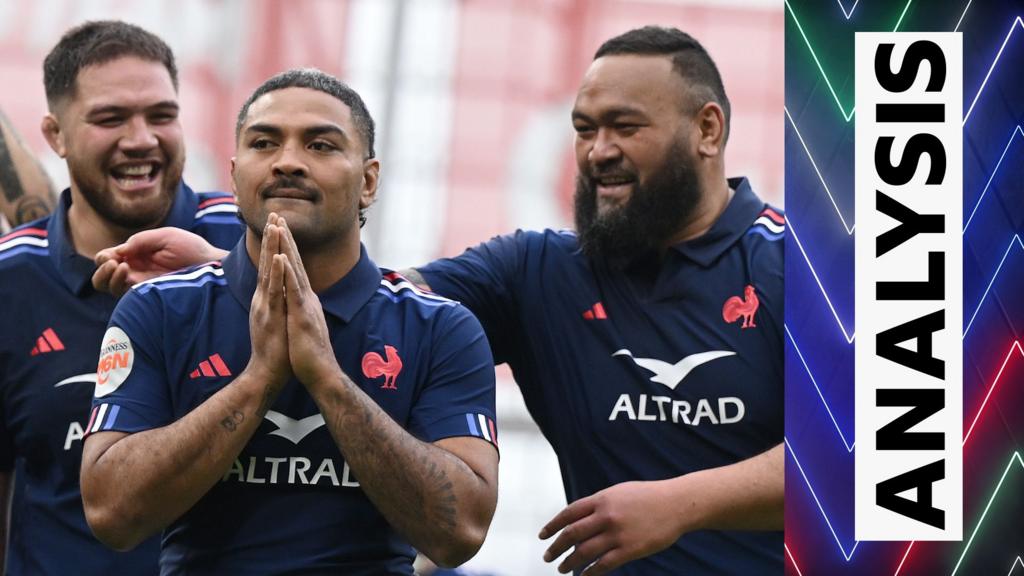

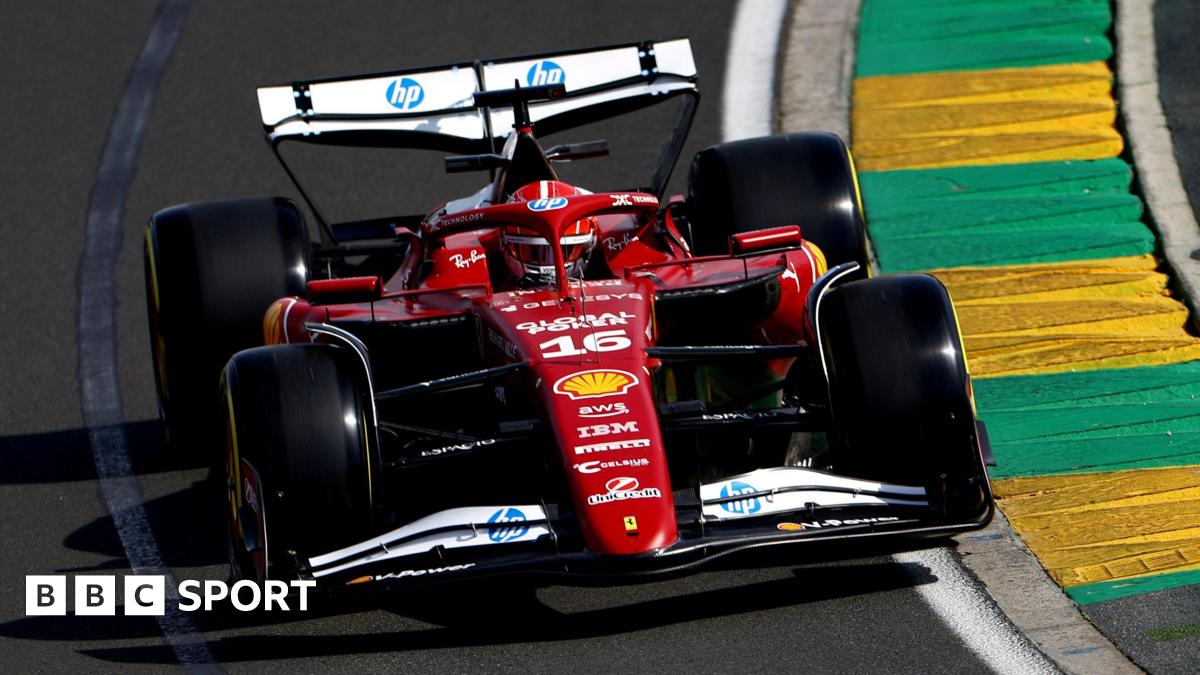
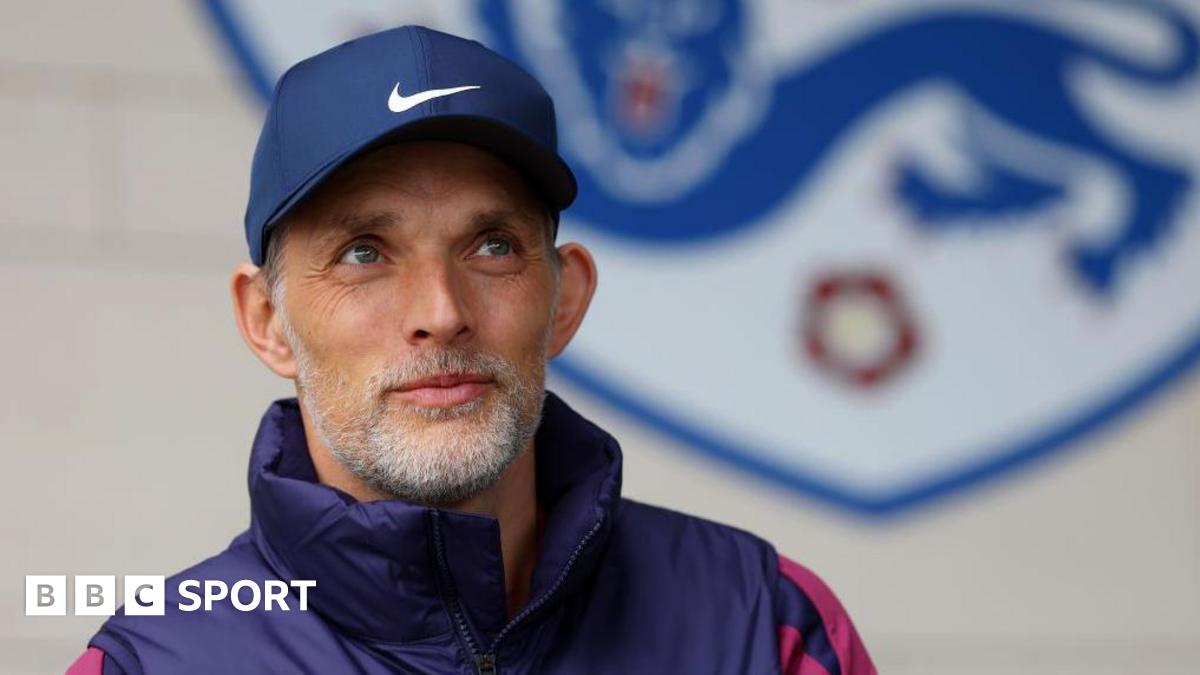

![Presidents Day Weekend Car Sales [2021 Edition] Presidents Day Weekend Car Sales [2021 Edition]](https://www.findthebestcarprice.com/wp-content/uploads/Presidents-Day-Weekend-car-sales.jpg)



 English (United States)
English (United States)